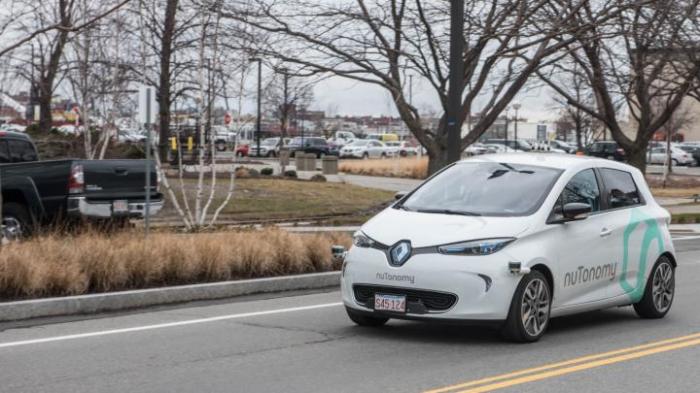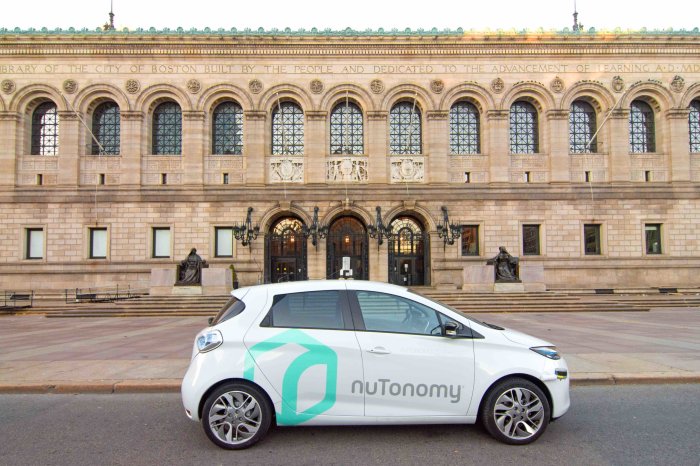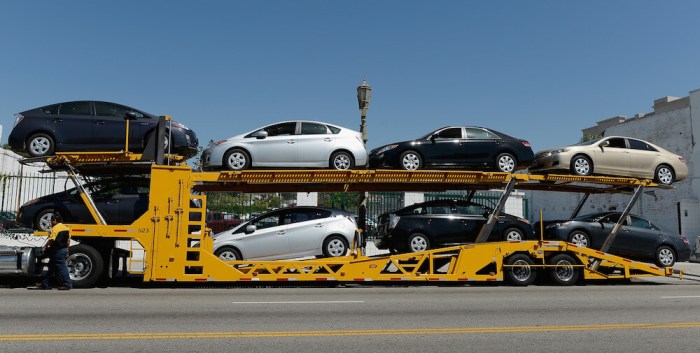If you’re driving on the highway and a car suddenly stops in front of you, you usually brake or swerve to avoid hitting it. But do you decide in advance which way you turn the wheel?
Probably not, since you’re relying on instinct. When it comes to self-driving cars, however, this gets more complicated.
“When we think about autonomous vehicles, we actually have to program them to respond. Robots don’t have instincts,” said Nicholas Evans, a professor of philosophy at the University of Massachusetts Lowell. “That raises the question of if you had to decide which way you were going to swerve beforehand, which way would you swerve?”
The classic case for such an ethical dilemma, Evans said, usually involves choosing between swerving to hit a school bus full of children or swerving to hit one person on a motorcycle. The choice depends on the risk to other people and the risk to yourself.
This is just one ethical question Evans hopes to answer to help the future of this technology. He recently won a three-year, more than $556,000 grant from the National Science Foundation find these ethical answers and work with engineers to program them into autonomous cars via decision-making algorithms.
With more and more cities testing self-driving cars, autonomous travel seems right around the corner — but these ethical answers have to be programmed in before they hit the market, he said.
Here’s another conundrum he’ll work on: Say you’re behind a truck and something large and heavy falls off of it. You’re in an autonomous vehicle, which is programmed to be so responsive that it can brake in time to avoid the object. The catch is that there’s a human-driven vehicle tailgating you.
If your self-driving car stops suddenly, the human-driven car will likely rear end you. But if the self-driving car breaks slowly, so the person can stop too, you’re at greater risk of hitting the object.
“The question is, should we program cars to try to decrease global risk, or just to save you and to hell with everyone else? — including tailgaters, who some might say deserve everything coming to them,” Evans said.
To answer this, he and his team will perform some models that figure out how many lives are in danger overall, depending on what risks are programmed into the autonomous cars.
“We look at the health impacts of one decision or another,” he said, “and model them as a rate: How many extra deaths can we expect if we program the car to not care about the tailgater?”
Though the tech seems far along, Evans assures that there’s still time to answer these questions. And even though it seems intimidating or dark to calculate how many deaths we can expect when these cars are on the road, it’s worth it.
‘Ninety percent of road accidents are caused by human error, from things like speeding and drunk driving. If we can give everyone a driver that can’t get drunk or tired, we stand to gain a lot over the long term,” he said. “Yeah they’ll be problems, but people like myself do this work because problems are trackable and can be solved. They’re worth solving as we continue along.”
How many cities are testing self-driving cars?
New York City recently announced that self-driving cars will be tested on Manhattan early next year, but this isn’t the first time autonomous vehicles are taking over city streets. In fact, 53 cities around the world are working toward a driverless future, according to a new interactive map.
Bloomberg Philanthropies recently released its “Global Atlas of Autonomous Vehicles in Cities,” which the organization is calling the first-ever map to show how city governments are preparing to transition to driverless cars.
Whether hosting industry tests, organizing their own pilot programs and/or developing proactive policies and plans, these cities are “planning for a driverless future,” according to the map, which is crucial to the development of the technology overall.
“Cities will play a pivotal role as the world moves towards a driverless future,” said James Anderson, head of Bloomberg Philanthropies’ Government Innovation program, in a statement. “Cities are stronger when they learn and act together, and this map provides cities with information critical to their own success through this transition. This map will serve as an important knowledge-sharing tool, providing cities with what’s needed to not only have a seat at the table during this transformation but be leaders of it.”
Out of all 53 cities that have some sort of autonomous vehicle program, 35 cities are already piloting projects, including Boston, San Francisco, Detroit, Paris and London.
Eighteen of the cities, like Cambridge, Nashville and Montreal, are in the process of conducting long-range surveys or assessing the “regulatory, planning and governance implications” of autonomous vehicles.
And nearly half — 25 total — of all the cities embarking on autonomous driving technology are in the United States.
The map will be updated as cities enact new pilot programs and policy efforts. Check out the interactive map at avsincities.bloomberg.org.


















